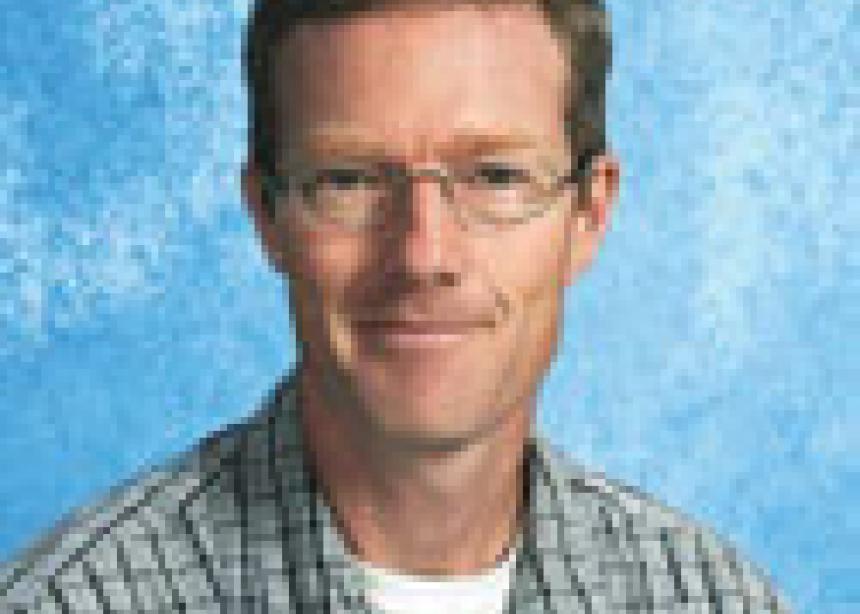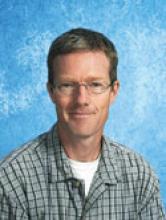‘Westgate . . . is a school grounded in the Anabaptist tradition. It is the mission of the school to provide a well-rounded education, which will inspire and empower students to live as people of God.’
When we unpack this mission statement, it is worth noting that it holds two areas to be important: the grounding of the school in the Anabaptist tradition and providing a well-rounded education within this tradition.
When we begin with this dichotomy, it seems that our challenge at Westgate is to somehow hold these two areas in a healthy tension, that we make sure we do Christian-type activities as we teach non-Christian subjects. But is this a healthy way to look at a Christian education? Why do we think Christianity is something that must be integrated into non-Christian things?
Although the mission statement sets us up with the two aspects of the school—the Christian and the academic—it ends by showing that we cannot think of them as two aspects. The well-rounded education is intended to inspire students to live as people of God; the well-rounded education is a Christian education, not simply an education in a Christian school.
When we do so, we make the well-rounded education into a secular education which simply combines itself with the Christian aspects of the school. We fall into this trap when we assume that our “Christian focus” is taken care of in our Christian studies classes, in devotions or in chapel. Conversely, we fall into the same trap when we spend time and energy trying to insert our Christianity into our subject areas, thinking that if we do so, the “Christian part” of our job is done.
Math classes are not made Christian when we use a formula to find out how many magi visited Jesus. Science classes are not made Christian when we offer creationism as one of the possibilities for the creation of the world. Language arts classes are not made Christian when we note biblical allusions in literature. It is much more difficult than this. Our mission is somehow to teach within a framework that makes the radical claim that our subject areas are what they are because we are teaching them from within the Christian tradition.
There are, of course, many times when we fall short of this mission:
- When we put provincial curriculum ahead of Christian education.
- When we put post-secondary education goals ahead of Christian education.
- When we put our secular textbooks ahead of Christian education.
But despite these shortcomings, we continue to be challenged by the fact that all of our courses, knowledge and wisdom comes from God.
Let me give you a specific example. A few years ago we changed the name of one of the courses I teach from “world religions” to “A Christian response to religious plurality.” The new title makes the claim that even a study of other religions in a Christian school is a study in Christianity. In other words, our Christian response to those who believe differently than we do is an important aspect of our theology. More importantly, such a title makes it clear that even when we study something that is seemingly non-Christian, it is actually a study of our Christianity, since there is no academic study apart from Christ.
Because the course is offered within the scope of Christian education, it is much different than the same course offered in a secular school. We don’t simply study the history and practices of other religions from a so-called objective framework; we study them subjectively as Christians, embracing the fact that teachers are teaching courses as Christians within a Christian worldview.
It may be tougher to see this Christian foundation in other courses, but it is my hope that the foundation is there. We need to keep working at Christian education, finding ways to see the foundation of our academics as being of God, taking to hear the words of Deuteronomy
32:2-3: “May my teaching drop like rain, my speech condense like the dew; like gentle rain on grass, like showers on new growth. For I will proclaim the name of the Lord; ascribe greatness to our God.”
James Friesen teaches Christian studies, language arts and mathematics at Westgate Mennonite Collegiate, Winnipeg, Man..



Add new comment
Canadian Mennonite invites comments and encourages constructive discussion about our content. Actual full names (first and last) are required. Comments are moderated and may be edited. They will not appear online until approved and will be posted during business hours. Some comments may be reproduced in print.